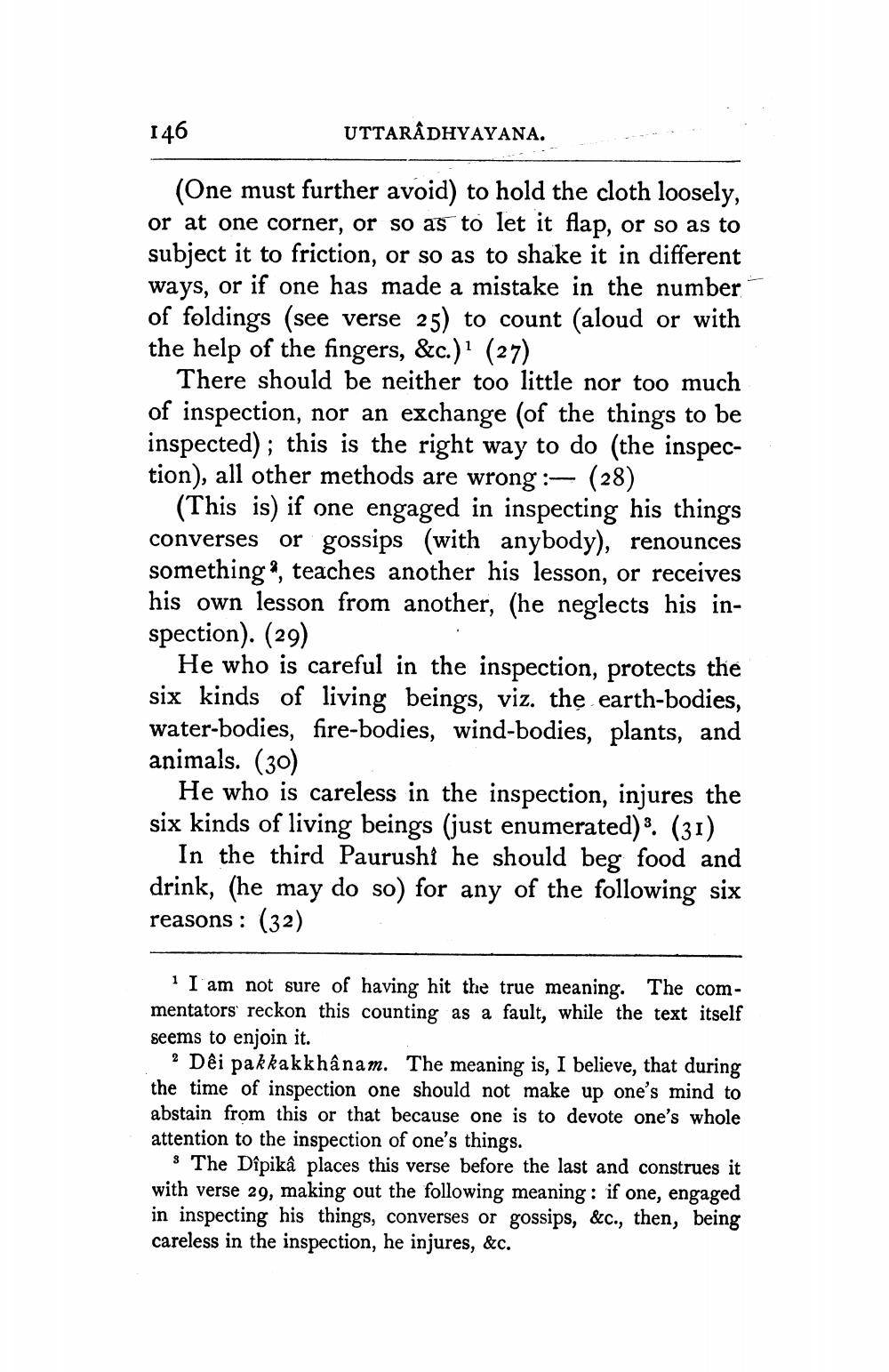________________
146
UTTARADHYAYANA.
(One must further avoid) to hold the cloth loosely, or at one corner, or so as to let it flap, or so as to subject it to friction, or so as to shake it in different ways, or if one has made a mistake in the number of foldings (see verse 25) to count (aloud or with the help of the fingers, &c.)? (27)
There should be neither too little nor too much of inspection, nor an exchange (of the things to be inspected); this is the right way to do (the inspection), all other methods are wrong :- (28)
(This is) if one engaged in inspecting his things converses or gossips (with anybody), renounces something, teaches another his lesson, or receives his own lesson from another, (he neglects his inspection). (29)
He who is careful in the inspection, protects the six kinds of living beings, viz. the earth-bodies, water-bodies, fire-bodies, wind-bodies, plants, and animals. (30)
He who is careless in the inspection, injures the six kinds of living beings (just enumerated) 3. (31)
In the third Paurushi he should beg food and drink, (he may do so) for any of the following six reasons : (32)
1 I am not sure of having hit the true meaning. The commentators reckon this counting as a fault, while the text itself seems to enjoin it.
? Dêi pakkakkhânam. The meaning is, I believe, that during the time of inspection one should not make up one's mind to abstain from this or that because one is to devote one's whole attention to the inspection of one's things.
3 The Dîpikâ places this verse before the last and construes it with verse 29, making out the following meaning: if one, engaged in inspecting his things, converses or gossips, &c., then, being careless in the inspection, he injures, &c.




